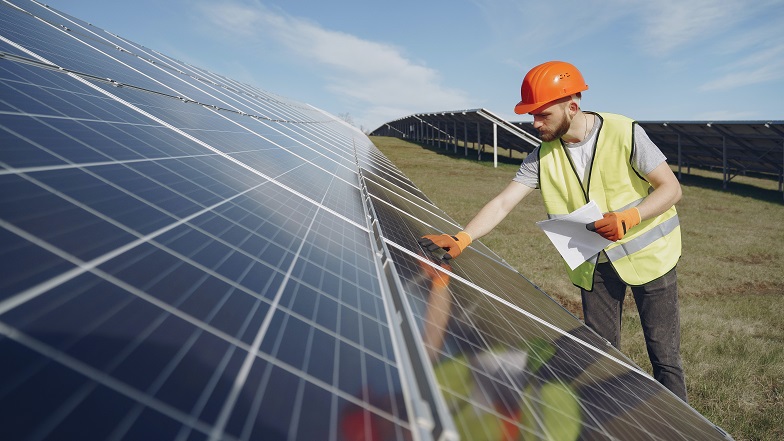
Passionate about protecting the planet?
Are you concerned that the damage caused by climate change is going to be irreversible? Do you want a job that could make a real difference to the future of the planet and the billions of people living on it?
If so, then you should consider a job that tackles climate change. Sustainability is a big, emerging sector, so it’s understandable if you don’t know what type of jobs are available. To help you decide, here are five climate change jobs to consider (and our advice on how to get them:)
Sustainability officer
What they do: A sustainability officer, sometimes referred to as a chief sustainability officer (CSO), is employed by an organisation to manage its corporate sustainability strategy. The responsibilities of a sustainability officer will vary depending on the organisation they work for, but will typically involve monitoring the impact the organisation’s activities have on the environment and finding sustainable ways to improve its performance.
What you need to do the job: Sustainability and environmental topics are constantly evolving, meaning you’ll have to keep up-to-date with current strategies, regulations and innovations. You’ll need to be a creative thinker and a strong communicator to get the business to back your initiatives. Most sustainability officers also have a degree in a related subject like conservation, sustainability or environmental sciences, or will have worked their way up from similar roles.
Perfect for: People whose mantra is reduce, reuse and recycle
Our advice: Sustainability is a developing area, and while many organisations are aware of the impact that their activities have on the environment, not all have taken the step in hiring a dedicated sustainability officer. However, it’s certainly an important emerging role, meaning now is the perfect time to move into this area. Sustainability officers aren’t limited to specific sectors either, so consider organisations in sectors like manufacturing, retail and hospitality when looking out for this role.
Five jobs that make a difference
View all sustainability officer jobs now
Environmental lawyer
What they do: Environmental lawyers can work for corporate clients, NGOs and the government to help handle legalities for areas such as renewable energy, sustainability and climate change. Their role could involve everything from fighting claims around a company’s environmental dealings and advocating for cleaner business practices, through to putting forward ways to reduce pollution and lobbying for changes in environmental legislation
What you need to do the job: To become an environmental lawyer you’ll either need a full law degree, or a degree in a subject you’re able to do a ‘law conversion’ course with, that focuses on teaching the core components of the legal system. You’ll also need to be interested in environmental issues and be comfortable analysing large amounts of data to develop arguments and recommendations.
Perfect for: People who think that Erin Brockovich was onto something
Our advice: Environment law is a relatively new area of law and can be complex as it covers a wide range of rules and legislation, such as air and water quality, waste management, biodiversity and much more. To be sure you want to practice in this area, see if you can arrange work experience or an internship with an environmental law firm to get hands-on experience.
Environmental law careers: How to get started
View all environmental law jobs
Environmental engineer
What they do: Environmental engineers are responsible for managing and reducing waste, minimising and potentially reversing the environmental damage caused by pollution. The tasks an environmental engineer carries out may include gathering data from multiple sources to evaluate the potential environmental impact of a project and writing up reports with their findings and recommendations.
What you need to do the job: A degree in engineering or a related subject like science, environmental science or geotechnical engineering will help you step into a job as an environmental engineer. Personal qualities that employers look for in candidates include analytical thinking, excellent time management and strong communication skills.
Perfect for: People who hate litter (and actually want to do something about it)
Our advice: As well as impressing employers with your experience, show them that you’re up-to-speed with the latest rules and regulations by listing all the relevant courses you’ve taken, for example Environmental Management or Sustainable Development.
View all environmental engineering courses
View all environmental engineering jobs
Conservationist
What they do: Also known as a conservationist scientist, a conservationist manages natural habitats, including parks, forests and grasslands where they’re responsible for finding ways to use the land without damaging the environment. Conservationists can either be employed by private landowners or by the government, where they’re tasked with ensuring that landowners adhere to the relevant rules and regulations about protecting the land.
What you need to do the job: A bachelor’s degree in a subject like forestry, agricultural science or environmental science is needed to work as a conservationist. A love of nature and being outdoors is also essential, as well as having strong analytical and decision making skills.
Perfect for: People who love protecting the great outdoors
Our advice: Employers are looking for candidates who have a real passion for protecting the environment. To strengthen your CV consider listing any environmental groups or organisations that you’re part of, or referencing your contribution to ‘green’ campaigns that you’re involved with.
Renewable energy technician
What they do: Renewable energy technicians install, repair and maintain equipment that provides power through renewable energy such as wind, solar and hydro (water). Technicians are often referenced by the area they specialise in, for instance, wind turbine technician or hydro energy technician. The tasks a renewable energy technician performs will depend on the type of energy source they work with but may include monitoring the equipment’s output, testing equipment and making repairs.
What you need to do the job: You’ll usually need a degree in a science or engineering-based subject, such as renewable energy , electrical or mechanical engineering.. However, it’s also possible to become a renewable energy technician through an apprenticeship. As well as this, you’ll need to have a genuine interest in renewable energy, have excellent attention to detail and have more than a basic knowledge of computer and IT systems.
Perfect for: People who believe green energy is the future
Our advice: As well as being a highly skilled technician, you’ll need to be comfortable being in the great outdoors and be able to focus and concentrate in all weather conditions. Also, not being afraid of heights is important if you want to work with wind turbines or solar panels.
View all renewable energy jobs
Ready to help conserve the planet? Find your perfect climate change job now.





